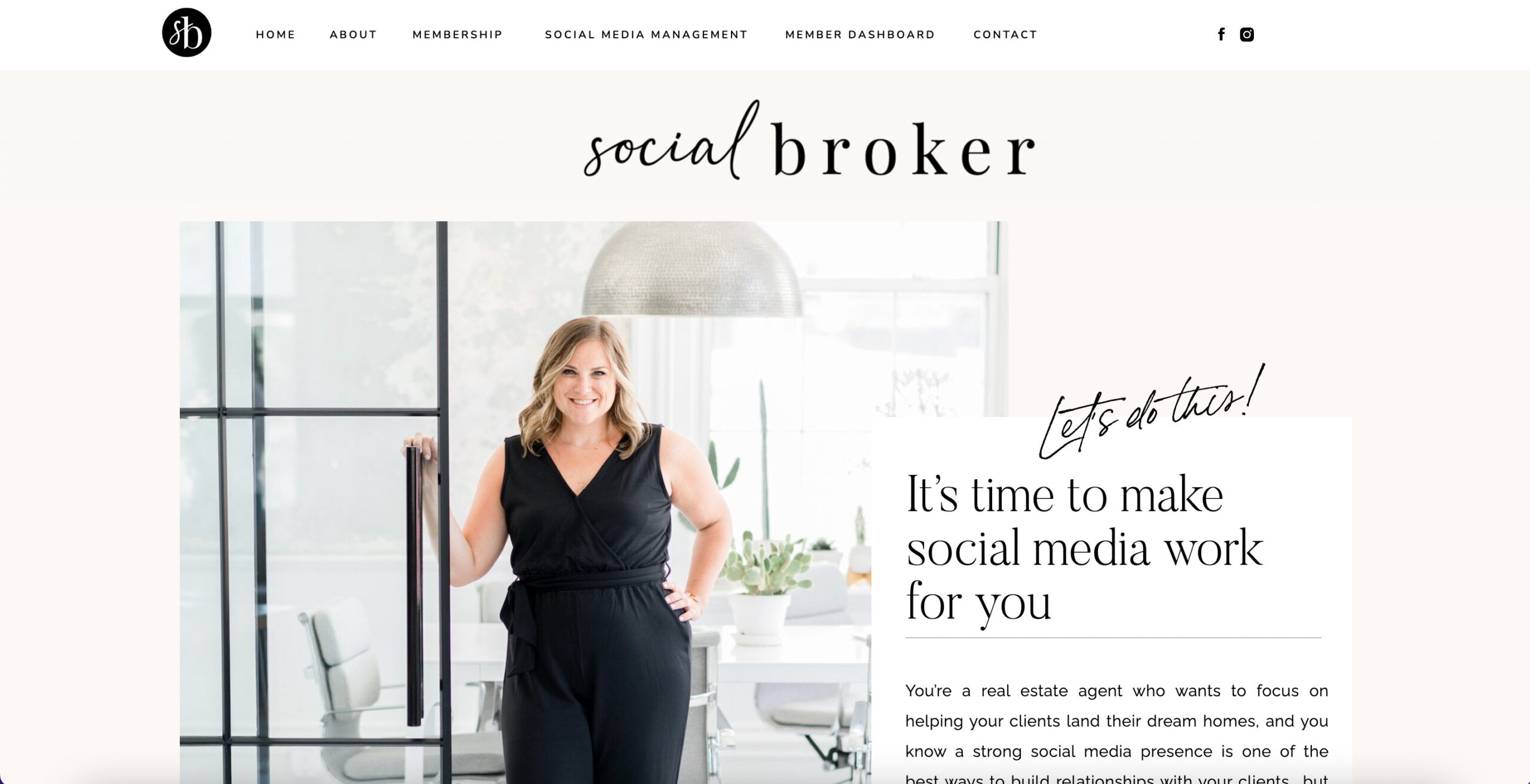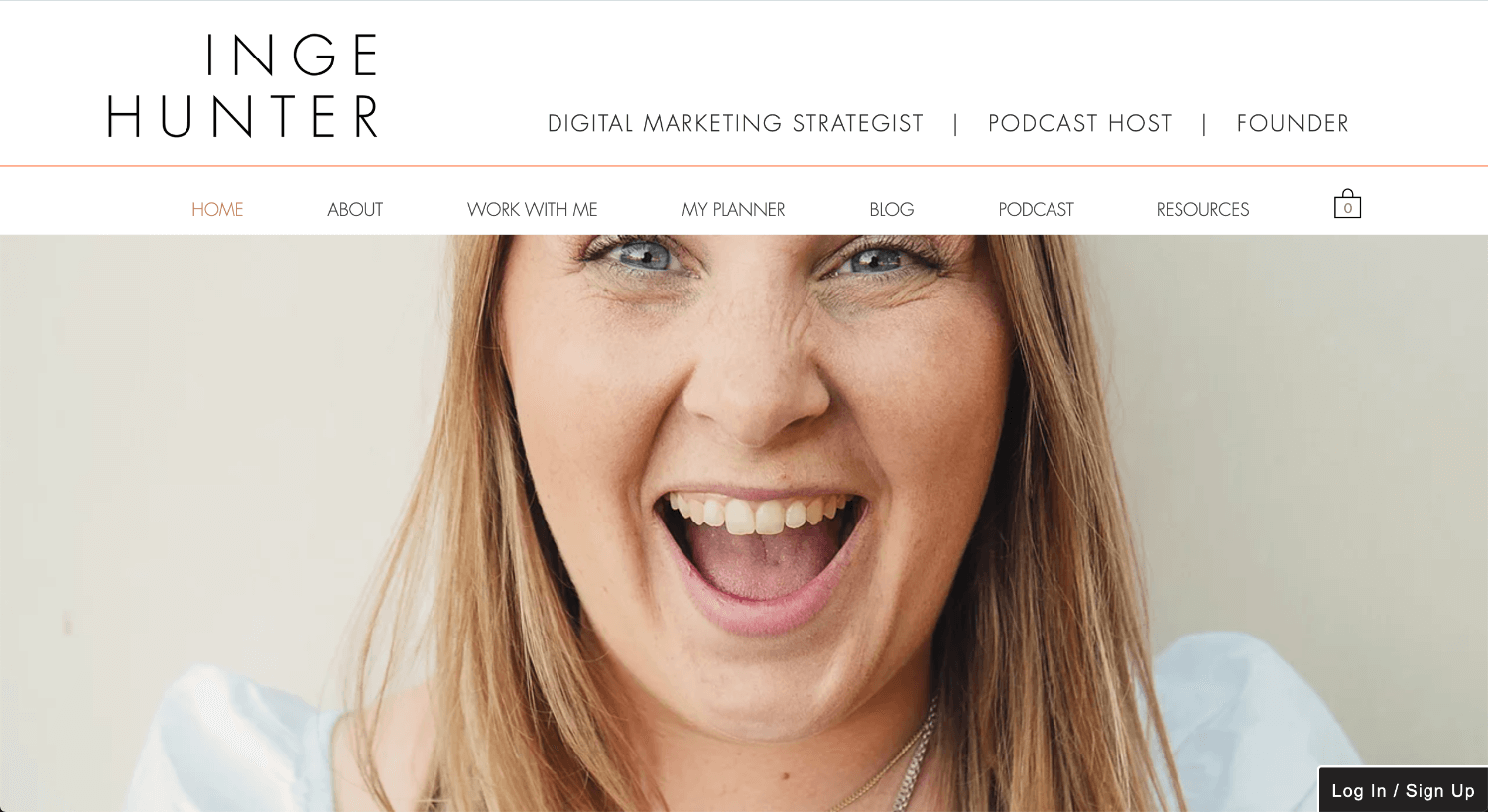Whether you’re speaking at a conference, creating your company’s website, or simply updating your LinkedIn profile, you need to write a good professional bio—a short summary of your life and career that tells people who you are, what you do, and what you’ve achieved. It’s really important to get your bio right as it may be the only chance you have to impress a potential client, employer, or customer.
But writing about yourself can be hard (trust me, I’ve been a professional writer for a decade and I still struggle sometimes). If you’re stuck staring at a blank sheet, trying to write your professional bio, though, we’ve got some good news. There are easy ways to write a great bio: start with a template, follow these tips, and you’ll get it right the first time—with almost no stress.
Table of Contents:
- What makes a great professional bio.
- Tips for writing a standout professional bio.
- 4 perfect professional bio templates.
- 3 inspiring professional bio examples.
What makes a great professional bio?

A great professional bio does three things: It tells people who you are, what experience you have, what it is that you do, and why you do it. Bios should be short and to the point. They need to reveal enough about who you are to convince someone reading your bio that you’re a qualified professional, without being a full accounting of your personal and work history. Nobody wants to read a bio that starts with “I was born in 1990 to two parents who loved me.”
How you go about explaining the who, what, and why depends a lot on context. While the advice in this article will allow you to easily write a very good professional bio, you will still need to tweak it for different purposes. The bio on your company website should be tailored to a different audience than a bio in an industry conference brochure where you’re speaking.
Similarly, if you have multiple roles, jobs, and experiences, you shouldn’t try and cram them all into one bio. Instead, you should write a different one for each situation.
For example, I have four basic professional bios depending on whether I am highlighting my mainstream writing, my content marketing, my photography, or one of the companies I’m involved with. They say things like:
- Harry Guinness is an Irish freelance writer. His work has been published in The New York Times, Wired, Popular Science, and countless other publications.
- Harry Guinness is an Irish freelance B2B writer. He works with companies like Zapier and MemberSpace to create high value content.
- Harry Guinness is an Irish photographer and educator. He is a regular contributor to Popular Photography and Wired. His photographs have been published in countless newspapers, magazines, and websites—often without his permission.
Now, let’s get into the nitty gritty. While we’ll tackle the “who”, “what”, and “why” separately, it’s worth noting that the categories can bleed into each other a bit. Still, it’s worth considering them individually as it will make sure you get all the important details down in a logical order.
A great professional bio: Who
The first part of any bio is introducing who you are. In most cases, this is going to be simply stating your name, where you’re from, and where you work. If you expect people to know you, for example, if the bio is for an industry event where you are a regular speaker, then it can be a little briefer. On the other hand, if you are introducing yourself to people who have never heard of you or the company you work for, you should go into a little more detail.
Depending on who your bio is for and how long it needs to be, some of the details you should include are:
- Your name.
- Where you’re from.
- Where you’re based.
- What company you work for.
- What your company does.
So, something like this ticks all the boxes:
Harry Guinness is the founder and CEO of Snapsure, a planning app for landscape photographers. Originally from Dublin, Ireland, he now splits his time between there, South East Asia, and the French Alps.
It’s short, to the point, and gives anyone reading it a good idea of who I am.
A great professional bio: What
Telling people your job title only goes so far. Saying I’m a freelance writer doesn’t reveal a lot about the kind of work I do. There are freelance tech writers, freelance sports writers, and freelance ghostwriters who write novels for other people to publish. So, once you introduce who you are, you need to flesh out some of the details.
This is the opportunity to say things like:
- What exactly you do at the company you work for.
- Where you went to university.
- What degrees and other qualifications you have.
- What professional bodies you are a member of.
- Where you have worked in the past.
- What professional roles you hold (or have held).
- What fields of your profession interest you.
- What areas of the world you work in.
- How long you have been in the industry and/or your current role.
Depending on the length of the bio you need to write (and the length of your career) this can be the longest section—and the hardest to keep concise.
Let’s use me in my professional content marketer role as an example again. The “who” would be something like:
Harry Guinness is an Irish freelance B2B writer.
Then the “what” could continue:
For the past decade, he has worked with tech companies like Zapier and MemberSpace to create high value content. With an MSc. in Business and Management from Trinity College, Dublin, he understands how well crafted content marketing can drive customer acquisition and engagement.
In just a few lines, this reveals what experience I have, what my qualifications are, and what kind of work I do. Although I could go a little deeper into some things, I feel that for most situations, this is actually enough information.
A great professional bio: Why
The last thing to cover is a little about what motivates you, either professionally or personally. While somewhat optional, this is the chance to mention things that reveal the deeper you, like:
- Your guiding philosophy.
- Your hobbies and passions.
- Your family.
- Your hopes, dreams, and goals.
Continuing the example above, the “why” of my bio would be something like:
When he’s not writing well crafted copy, he can be found skiing in the French Alps or out in the woods with his Belgian Malinois, Gunther.
Alternatively, if I wanted to reveal more about my professional goals, it could say something like:
He is currently working with two early-stage startups and hopes to retire before he is 45 so he can spend more time with his girlfriend and dogs.
Or even something as simple as:
He is on a one-man mission to help people write brilliant professional bios.
As you can see, depending on your audience and the purpose of your bio, you can really go any direction with the “whys”. It can be your biggest opportunity to stand out from other people with similar jobs and qualifications.
Tips for writing a standout professional bio

Writing a bio that says who you are, what you do, what you’ve done and achieved, and what guides or inspires you will get you 80% of the way to a perfect professional bio. If it’s short, succinct, and tailored to your audience, you’ll be 90% of the way there. Still, there are some tweaks and tips that can really make your professional bio stand out.
Write it in the first person
While many professional bios will need to be in the third person (so they say “Harry Guinness is…” rather than “I am…”), it’s generally easier to write about yourself in the first person. Start by saying “I am X… I do Y…” and then, if it needs to be in the third person, edit it afterward.
Professional but personal
It’s easy to fall into the trap of writing a bio that just lists your name and job title without revealing anything else. There are lots of CEOs, marketers, and every other job title you can imagine. If you want your bio to stand out and for people to remember you, make sure to add some details about what makes you you—whether they be personal information or professional goals.
Humor (where appropriate)
If there’s an opportunity for a good joke and it fits your personality, take it. People love humor, even if they’re reading a list of professional bios on a conference website.
Whenever I’m using my photographer bio, I always mention that my photographs have been published in thousands of places without my permission—because they have. For photographers, it’s very relatable.
You don’t have to try too hard with the comedy. A simple pun, dad joke, or wry observation at the end is enough.
Write it—then write it again
The secret to great writing isn’t in crafting a perfect first draft, but in continuously reworking and refining what you have. It doesn’t take that long to type 50,000 words, but it takes years to write a good book.
When you write your professional bio, don’t post it straight away. Step away for a few minutes and go do something else. Then come back and read over it. You’ll probably see an awkward phrase or something else that can be tweaked. Make a few changes, then leave it again. After three or four passes, it will be in great shape!
For more on editing things like this, check out this article I wrote for the New York Times on editing your own writing.
Pay attention to every word
Word choice matters. It’s easy to throw in extra words that don’t really add much to your bio and distract from what you are trying to say. Things like “aspiring”, “up and coming”, “established”, and other vague descriptors are all generally superfluous.
On the other hand, if you’re going to use a descriptive word, make it a strong one. Try “brilliant” instead of “good”, “fascinated by” instead of “interested in”, and so on.
So for my bio, instead of this:
Harry Guinness is currently on a one-man mission to try and help as many regular people as possible to write better and more worthwhile professional bios.
I should say something like this:
Harry Guinness is on a one-man mission to help people write brilliant professional bios.
Shorter is (often) better
When it comes to bios, they should be as long as they need to be—and no longer. Your bio needs to provide a clear picture of who you are, but it should do that as succinctly as possible.
When you’re writing and editing your bio, for every bit of information you have stop and ask “is this necessary for my audience to know?” If it’s not, remove it.
What information is necessary changes depending on the context. If you’re speaking at an academic conference, of course you should list your major publications and qualifications. On the other hand, people at an industry event are probably more interested in your job description.
Don’t be afraid to break the rules
With all that said, I can only offer you advice. If your bio calls for something that doesn’t neatly fit a template, throw out the template. Only you can judge whether your bio gives the impression of you that you want it too. If that means going off in a different direction, go right ahead.
4 perfect professional bio template

By now, you should already have the rough outline of a great professional bio in your head. If you want an easy to follow template to get it down on paper, here are four to try: two short ones and two longer ones.
All four templates do a really good job of getting the information you need to share up front, while still allowing you to include personal details.
Two line first-person template
I’m an X who does Y for Z. I A to B for C.
Example: I’m a freelance writer who works with top-tier publications like The New York Times and Wired, as well as exciting SAAS companies like MemberSpace. I take complex tech and business concepts and explain them for a general audience.
Two line third-person template
NAME is an X who does Y for Z. He/she As to B for C.
Example: Harry Guinness is a freelance writer who works with top-tier publications like The New York Times and Wired, as well as exciting SAAS companies like MemberSpace. He takes complex tech and business concepts and explains them for a general audience.
Paragraph first-person template
I’m an X based in Q who does Y for Z. I A to B for C. R is my passion. When I’m not working, you can find me doing S.
Example: I’m a freelance writer based in Dublin, Ireland, who works with top-tier publications like The New York Times and Wired, as well as exciting SAAS companies like MemberSpace. I take complex tech and business concepts and explain them for a general audience. Getting deep into tricky subjects is my passion. When I’m not working, you can find me skiing in the French Alps or out in the woods with my Belgian Malinois, Gunther.
Paragraph third-person template
NAME is an X based in Q who does Y for Z. He/she As to B for C. R is his/her passion. When he/she is not working, you can find he/she doing S.
Example: Harry Guinness is a freelance writer based in Dublin, Ireland, who works with top-tier publications like The New York Times and Wired, as well as exciting SAAS companies like MemberSpace. He takes complex tech and business concepts and explain them for a general audience. Getting deep into tricky subjects is his passion. When he’s not working, you can find him skiing in the French Alps or out in the woods with his Belgian Malinois, Gunther.
3 inspiring professional bio examples

As you’ve probably realised by now, great professional bios can take many forms.
Here are a few good examples from the MemberSpace community:
The Social Broker

The Social Broker is a content membership empowering real estate agents to build a polished & thriving online brand. They provide monthly content plans with daily post ideas, images, graphics, and captions. There’s a curated library of photos along with editable templates. There’s also a hashtag guide and social media tips to drive engagement along with complimentary coaching and training via a private Facebook group.
Inge Hunter

Inge Hunter teaches people how to tell the world about their business and gives them the process and strategies to achieve it. Her membership, Design Your Socials, is the quickest way to start leveling up and improving. It includes Zoom workshops, live weekly account reviews, Q&A member sessions, various content libraries, Google calendar of events, thousands of categorized hashtags, digital coworking, and more!
Being able to write an awesome professional bio is a skill that stands for you. Over your career, there will likely be dozens of times you need to succinctly explain who you are and what you do to people who may have heard your name in passing—or have absolutely no idea you exist. If you can do it well, without stressing about it, you’re more likely to be remembered, get the job, and generally succeed in your professional life.



